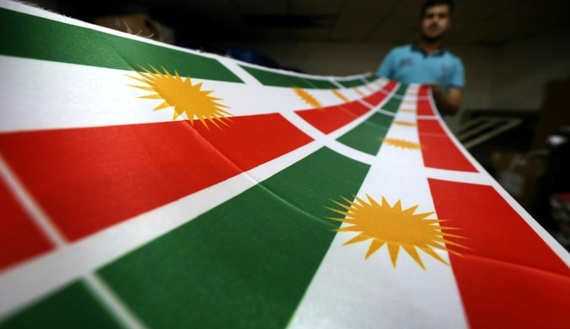Tehran, Erbil – Iran voiced on Saturday its opposition to the independence referendum in Iraqi Kurdistan Region that was called for by Kurdish authorities earlier this week.
It joins the Iraqi government and Turkey who have both rejected the vote.
“Iran’s principal position is to support the territorial integrity of Iraq,” foreign ministry spokesman Bahram Ghasemi said.
“The Kurdistan region is part of the Iraqi republic and unilateral decisions outside the national and legal framework, especially the Iraqi constitution… can only lead to new problems.”
Iraqi Kurdish leaders announced on Wednesday that they will organize an independence referendum on September 25, not only in their three-province autonomous region but also in other historically Kurdish-majority areas they have long sought to incorporate in it.
Iran worries about separatism among its own Kurds, most of whom live in areas along the border with Iraq.
Rebels of the Kurdistan Democratic Party of Iran (KDPI) and the Party of Free Life of Kurdistan (PJAK) launch sporadic attacks into Iran from rear-bases in Iraq, triggering sometimes deadly clashes with the security forces.
After an upsurge attacks in 2011, Iranian troops launched a cross-border incursion, forcing KDPI to retreat deeper into Iraq.
“Today, Iraq more than ever needs peace and national unity and differences between Erbil and Baghdad must be resolved within the framework of dialogue and in compliance with Iraq’s constitution,” said Ghasemi.
Head of the Kurdistan Region Masoud Barzani had held talks with Iraqi Prime Minister Haidar Abadi on Saturday to discuss the latest political, security and economic developments in Iraq.
A statement from Abadi’s office said that the two sides stressed in their telephone call the need to continue high-level coordination between military forces in order to complete the liberation of remaining areas and destroy the ISIS terrorist group.
They also underlined the importance of maintaining unity that will fortify field victories.
